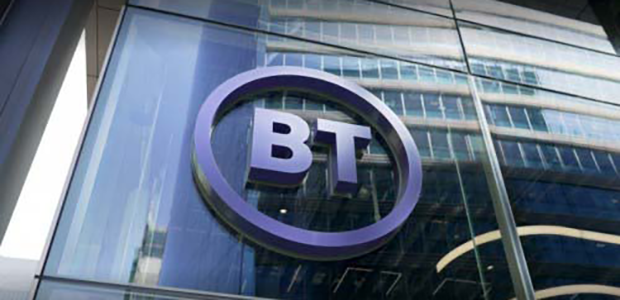
UK SMBs could save 280m tonnes of CO2e by hitting 2030 targets
This Earth Day, BT is announcing a new partnership with the UK Business Climate Hub (UKBCH) that aims to help UK small & medium businesses (SMBs) halve CO2e emissions by 2030 and empower them to achieve net zero emissions by 2050.
It comes as research suggests UK SMBs would stop 280 million tonnes of CO2e emissions from reaching the atmosphere if they hit this near-term goal.
There are 5.5 million SMBs in the UK, making up more than 99% of all businesses nationwide. Collectively they account for almost half (44%) of non-household emissions, making their role in tackling the climate crisis critical to the UK’s chances of hitting net zero by 2050.
Nine in ten (90%) of SMEs would like to address climate change at their business, but find it challenging to get started and identify the right tools to mitigate their environmental impact. To help them map out a path to net zero, the UKBCH, a shared endeavour between industry and government, has welcomed BT as a key industry partner and member of its Advisory Board, and has developed ‘Seven Steps to Sustainability’ to empower SMBs to get started today.
The new partnership aims to bring together BT’s expertise in supporting more than one million small business customers with the UK Business Climate Hub’s free resources to help businesses reduce their carbon footprint and their energy bills. Businesses can take the first step today by checking out the available, free resources from the UKBCH on its website. They can also work towards the SME Climate Commitment, by making a pledge to halve greenhouse gas emissions by 2030, achieve net zero emissions before 2050, and report progress on these goals annually.
Chris Sims, Managing Director, Small and Medium Business at BT, says: “BT set its first carbon reduction target more than 30 years ago, and we’ve had a strong track record of hitting our sustainability goals ever since. But we have size on our side – and from speaking to our small business customers we know that with limited resources, many of them struggle to find the time, the funding, or the guidance to help them prioritise sustainability. With the UK Business Climate Hub, we are beginning our journey to reach more businesses with free tools and practical support to help them set the foundations for a greener future, and ultimately, reach net zero.”
Chris Taylor, Net Zero Programme Director at the Broadway Initiative – which manages the UK Business Climate Hub – adds: “We’re delighted to partner with BT and are energised about the impact we will make together. The UK Business Climate Hub works closely with the government and our industry partners to produce essential guides for SMBs across multiple sectors, with practical advice on how to reduce carbon emissions and save on energy bills. Whether it’s a tailored net zero plan for individual SMBs, free carbon footprint calculators or an online training course on cutting emissions, with our tools and support, SMBs can reduce both costs and emissions and transition to a greener economy – the ultimate win-win.”
Seven steps to sustainability: practical tips for all sectors
The UKBCH has charted a course for SMBs to build and achieve a greener future. The ‘Seven Steps to Sustainability’ break down key actions so that businesses can create an achievable plan. These include:
- Understand the basics: An overview of net zero and how to reduce your business’s carbon footprint and any legal requirements on reducing carbon emissions
- Involve your team: Engage staff across the business to develop carbon reduction and energy saving initiatives. This could include an internal working group or hiring an external consultant
- Make the SME Climate Commitment: Commit to halving business emissions by 2030, reach net zero by 2050, and report yearly on progress towards these goals
- Make a plan: Measure current emissions from fuel consumption and electricity use. Taking stock of current business activities that contribute to overall carbon emissions will enable businesses to identify key focus areas
- Take action: Deploy technologies and new approaches to save energy and reduce carbon. Businesses can get sector-specific information here, and learn about specific actions that can be taken here
- Find finance and support: Businesses across England, Northern Ireland, Scotland, and Wales can identify specific programmes or initiatives to help them to finance their sustainability journey
- Look beyond your business: Identify opportunities across the business’s entire value chain to reduce its impact, including creating a greener supply chain, using electric vehicles and transport, and get low carbon product labels and certifications
SMBs can visit the UKBCH website to access an entire library of free resources, tools, and advice to cut carbon, reduce energy use, and chart a course to net zero: https://businessclimatehub.uk/

